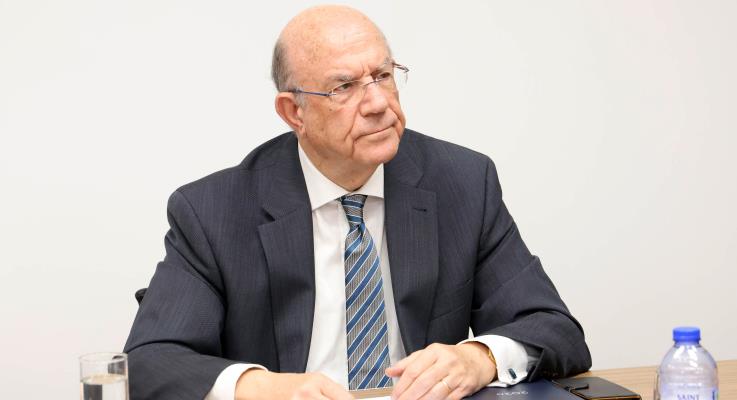With sound management of public finances, the economy will continue performing well in the next few years, but despite this there is no room for complacency, the finance minister said in parliament on Thursday.
Makis Keravnos made the remarks during a speech on the 2025 state budget – a formality that kickstarts the debate on the budget and leads up to the vote in the plenum later in December.
He said GDP growth is forecast at 3 per cent next year, 3.2 per cent in 2026, and 3.3 per cent in 2027. This compared very favourably to the current EU average of 0.8 per cent.
The government also expects the unemployment rate to keep dropping. Currently at 5 per cent, it’s projected to decline to 4.8 per cent in 2025.
Inflation is expected to stabilise at around 2 per cent – below the EU average of 2.5 per cent.
Keravnos set out the government’s priorities: a gradual decline in the public debt, reining in the public sector payroll, and achieving a fiscal surplus.
The latter would act as a cushion to deal with unforeseen events.
But the satisfactory performance of the economy warrants no complacency, the minister said.
“Time does not stand still,” the minister remarked, employing a saying from ancient Greece.
Despite the difficult times, Cyprus continues to fare well relative to elsewhere in the European Union, Keravnos said.
The index of material deprivation here is at 2.4 per cent, the second best (lowest) among EU countries. Also, the percentage of the population at risk of poverty is 13.9 per cent, second only to the Czech Republic and well below the EU average of 21.4 per cent.
The government would continue to spend on social programmes and welfare.
Next year will see a 5.3 per cent increase in social spending compared to fiscal 2024. For 2025, the government has budgeted €205 on the Guaranteed Minimum Income, €132 million on child benefits, and €95 million on low-income pensions.
Meantime the public wage bill would largely remain unchanged – €3.62 billion in 2025 compared to €3.66 billion this year.






Click here to change your cookie preferences